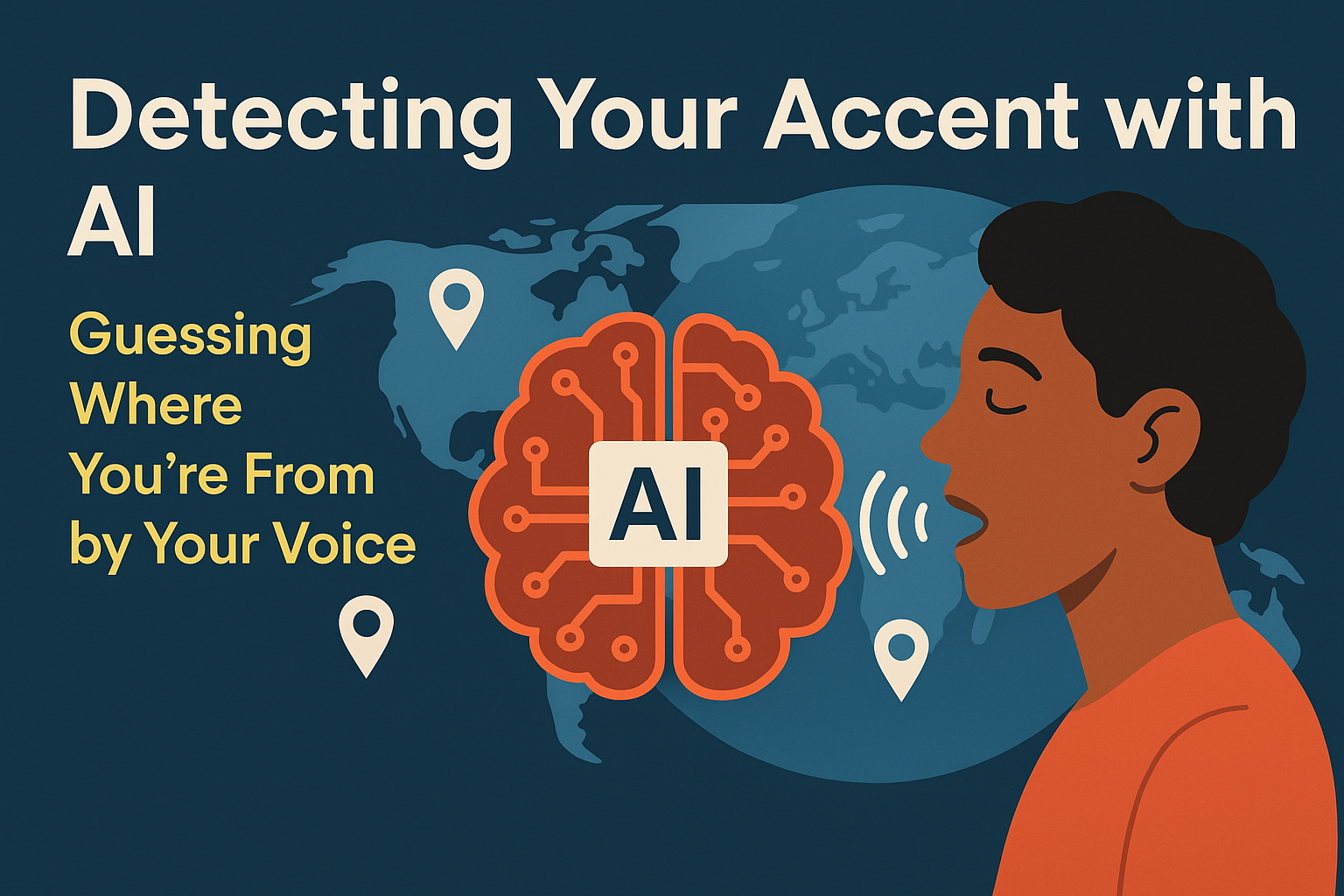Detecting Your Accent with AI: Guessing Where You're From by Your Voice

Have you ever heard someone speak and immediately thought, "You must be from New York!" or "That sounds like a British accent."? Turns out, you’re not the only one good at picking up accents. Artificial Intelligence is catching up—and maybe even outpacing us.
In this article, I’ll take you behind the scenes of a project I built that listens to a user’s speech and predicts their likely geographical origin—based purely on their accent.
🧠 The Idea: Our Voice Holds Geographic Clues
Every person carries a linguistic fingerprint. From vowel shifts and intonation to the way we pronounce “r” or “th,” these subtle signals form the acoustic identity of where we grew up or learned to speak.
While traditional voice recognition focuses on what we say, accent recognition is all about how we say it.
This project doesn't care if you say “hello” or “hi”—it listens for how you pronounce that e and the softness (or lack thereof) of your h.
🛠️ How It Works
To bring this idea to life, I built a lightweight system that goes through three main stages:
1. Speech-to-Feature Extraction
We start by recording a short audio clip from the user. Using libraries like Librosa and SpeechRecognition, we extract MFCCs (Mel-Frequency Cepstral Coefficients)—the gold standard for analyzing the texture of speech.
2. Accent Classification Model
We trained a classification model (initially using a basic CNN architecture, later fine-tuned with a Transformer-based approach) on labeled speech data. Each training sample was tagged with a region—such as "Southern US", "Northern England", "Indian Subcontinent", or "West Africa".
Even with only a few seconds of speech, the model learns to distinguish accents with surprising accuracy.
3. Prediction & Feedback
The model returns a list of possible origins, ranked by confidence. It may say:
🌍 Likely Accent Origin:
-
54% British (London area)
-
28% Irish (Dublin)
-
12% Australian
Sometimes it’s spot-on. Other times, users laugh at the results—and that’s part of the fun. It’s not just a tool. It’s a conversation starter.
🧪 Real-World Use Cases
While this began as a hobby project, the applications quickly became obvious:
- Language learning apps can use it to provide accent feedback
- Voice assistants might adapt behavior based on perceived origin
- Marketing teams could tailor content or offers by regional dialect
- And of course, security or verification systems might use voice patterns as soft identifiers
⚠️ But What About Privacy?
Great question.
The system is designed to process voice on-device or in an ephemeral cloud function—no speech data is stored, and the accent classification model doesn’t identify individuals, only regional speech patterns.
Still, we’re exploring federated learning models to further decentralize and anonymize the process.
👂 Try It Yourself
We're working on a simple demo web app where you can speak a sentence and get real-time feedback on your accent profile. It's not perfect, but it’s often surprisingly accurate—and always a bit entertaining.
🔚 Final Thoughts
In a globalized world, our voices carry traces of where we’ve been, who we’ve spoken to, and how we learned to communicate. With a bit of machine learning and a lot of curiosity, we can teach AI to appreciate the nuance in our speech—and perhaps even learn something new about ourselves in the process.
Your voice is more than sound—it’s a story. Now AI can start reading it.
📚 References and Tools
- Librosa: Audio and Music Signal Analysis in Python
- Common Voice Dataset by Mozilla
- SpeechRecognition Python Library
- AccentDB: A database of English accents for training and testing
- TensorFlow & PyTorch for model development
- Personal experiments and testing with ~1,200 voice samples across 12 regions
✏️Leave a Comment